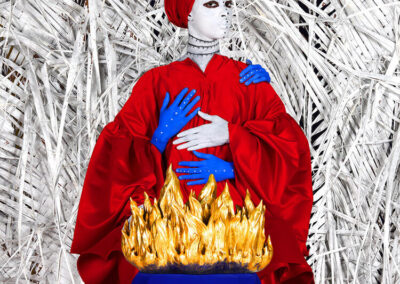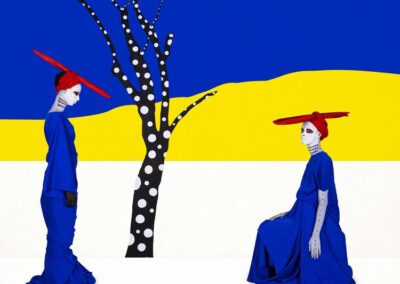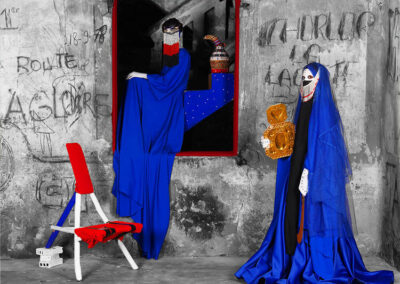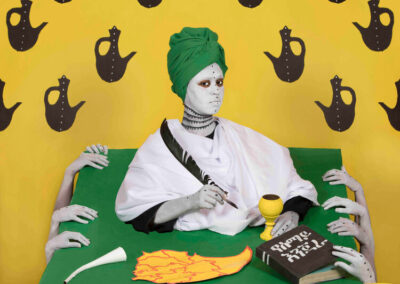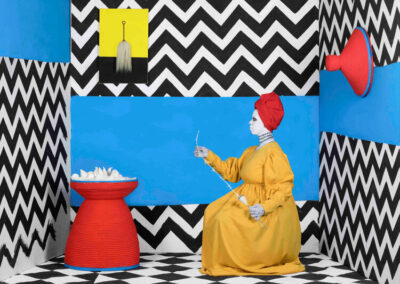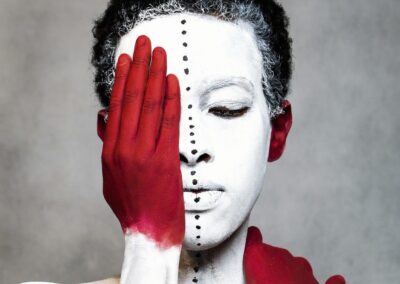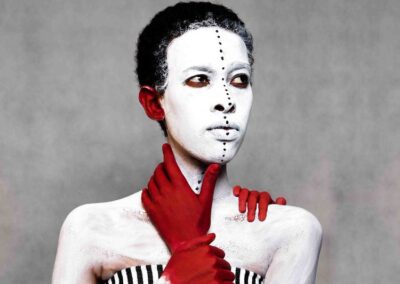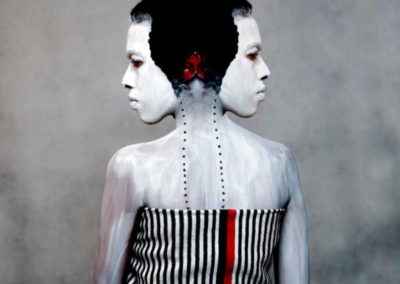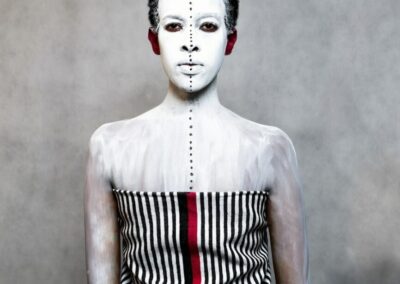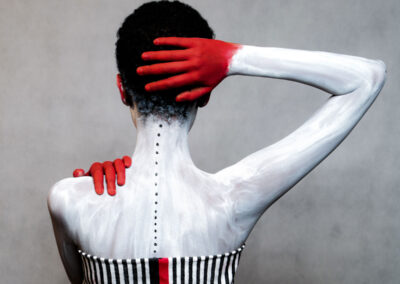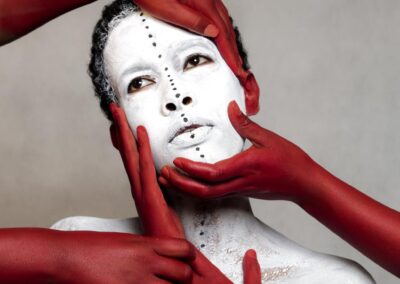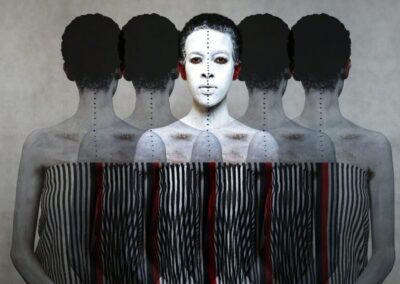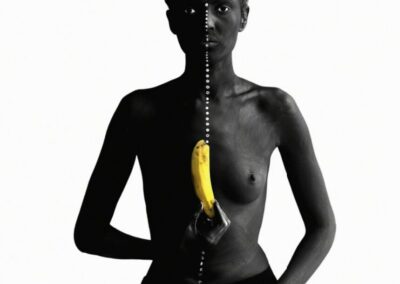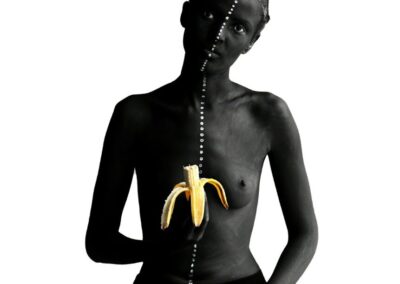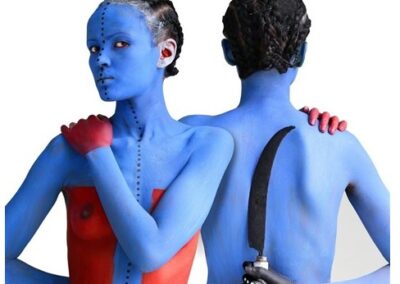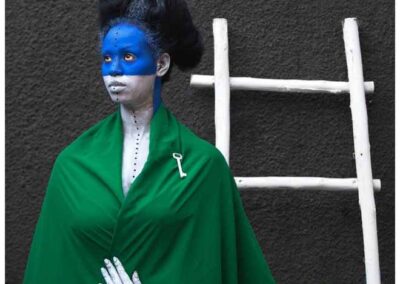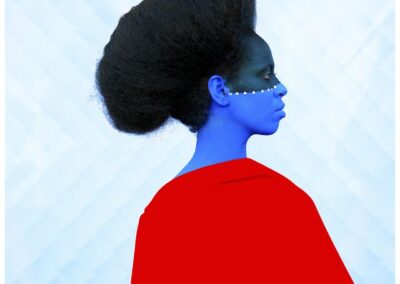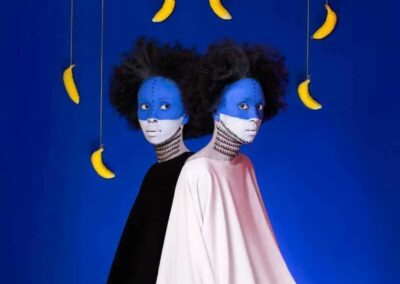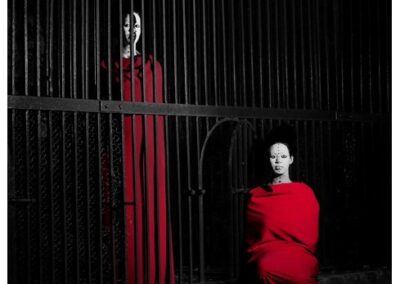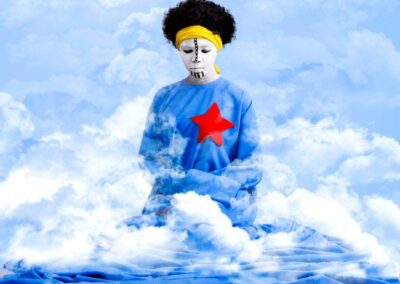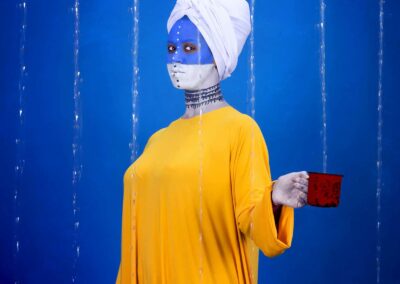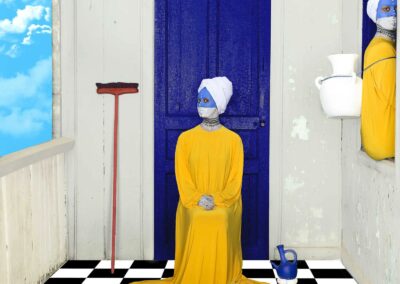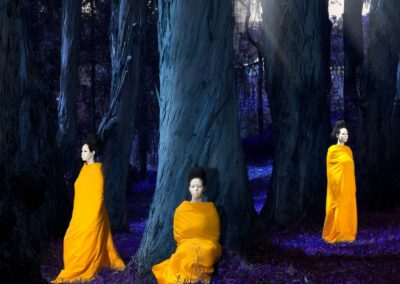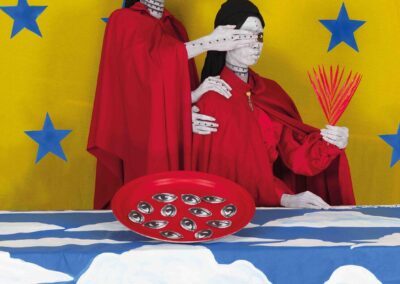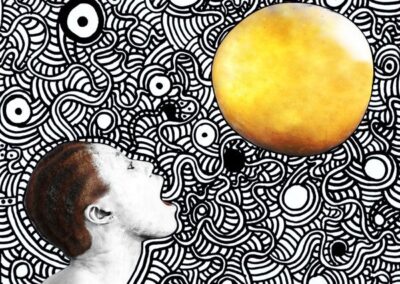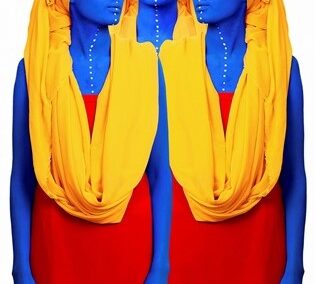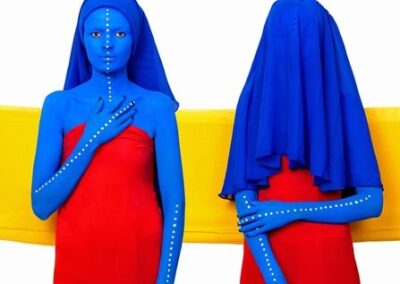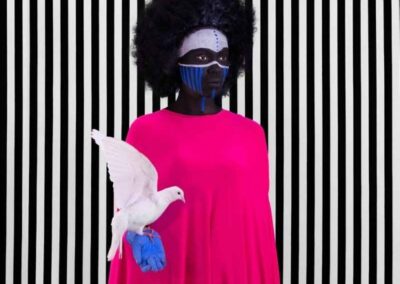Our next Artist You Need To Know is Aïda Muluneh.
Aïda Muluneh (born 1974, Addis Ababa, Ethiopia) is an Ethiopian photographer, educator, and entrepreneur known for her Afrofuturist photography that incorporates vibrant colours and body painting, creating evocative and enchanting tableaux that blend narrative and politics in an enticing manner that have a surrealist quality.
“Muluneh’s vibrant photographs express what it is to be an African woman, to encapsulate gender and identity, and to position it within the post-colonial experience. She interrogates the foreign gaze, and also raises the awareness of the impact of photography in shaping cultural perceptions.” (from the Jenkins Johnson Gallery)
Muluneh was born in Addis Ababa (Ethiopia) in 1974 : as a child she lived in in Cyprus, Greece, the UK, and Yemen before settling in Canada in 1985. Although she began taking photographs in high school, Muluneh was initially unsure about pursuing it as a career : but a visit from her grandfather (visiting from Ethiopia) and his encouragement as he’d been a painter in his youth offered her significant encouragement. She graduated from Howard University (in Washington, DC, in the United States) with a degree from the Communication Department with a major in Film.
After her graduation in 2000, Muluneh worked as a photojournalist with the Washington Post. But she found it too restricting and turned instead to making her own images that offered a deeper and more authentic sense of the history and people, both in terms of her heritage but also with their own stories that intersect with Muluneh’s experiences : “I believe in photojournalism, and I still teach it — but it came to a point where it wasn’t enough for what I wanted to say. I felt passionately about readjusting how the world saw us, and more importantly, how we saw ourselves. We’re not just sitting here waiting for people to save us.” (from here)
In 2007 she left that job with the WP and returned to Addis Ababa.
“The shooting process feels like a film script. That’s how I see these painted faces—as different characters void of nationality and ethnicity, like blank slates.”
“The collection that I have been working on for the past few years is inspired by traditional body paintings from Ethiopia, and also looking at global traditional cultures. I have found that elements from traditional societies are far more complex and, in fact, more contemporary in their approach—not only to body decorations but also in all the forms of handcrafts.
I mean, Picasso took from Africa and made it his own, when, in fact, artisans were producing highly complex patterns in spiritual motifs, or even in everyday household items, for an even longer time.
Hence, my approach has been combining elements of past traditions, but utilizing them in a form that brings them into the future. In a few interviews, there is this notion to categorize my work, but I am simply doing what I enjoy and sharing with the world elements of the richness of cultural heritage in Africa, while also telling stories of my personal experiences through each frame.”
(From an interview with Canadian Art Magazine)
Aïda Muluneh’s photographs have been featured in many different publications : her artwork is represented in the collections of the Museum of Modern Art (MoMA), the Smithsonian’s National Museum of African Art, Hood Museum, The RISD Museum of Art, and the Museum of Biblical Art in the United States. In 2007 she was awarded the European Union Prize in the Rencontres Africaines de la Photographie (which took place in Bamako, Mali); in 2010 she won the CRAF International Award of Photography (Spilimbergo, Italy) and was recognized with a CatchLight Fellow in San Francisco, USA, in 2018.
A more extensive listing of her exhibitions and awards can be seen here and a more comprehensive accounting of her published work can be seen here.
But Muluneh’s impact and importance is not solely through her own artwork but through her work as an educator and advocate : she was the first black woman to co curate the Nobel Peace Prize exhibition (in 2019) and was commissioned artist the next year for this event. She’s served as a juror for a number of significant photography competitions on the African and international stage such as the Sony World Photography Awards and the World Press Photo Contest.
A major focus of Muluneh’s activism – as both a teacher and an entrepeneur – is to foster and develop projects with groups and institutions in Ethiopia and Côte d’Ivoire : she is the founder of the Addis Foto Fest (AFF), the first international photography festival in East Africa which has been an ongoing event since 2010.
“The image the system was pushing out there didn’t match with the version of Ethiopia I knew.”
“You have to confront people with the work — what’s the point of art if you’re not able to go beyond the comfort zone of your own community or surroundings? I think that’s the power of photography.”
Much more of Aïda Muluneh’s evocative work, and more about her life and career, can be seen here at her site. A fine article that talks about her artwork but also her importance as a teacher and cultural advocate can be enjoyed here.

